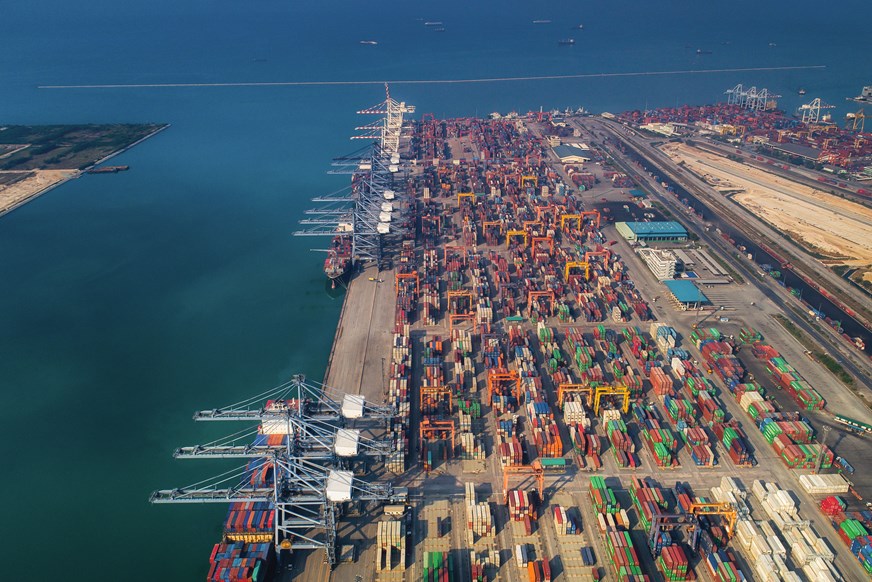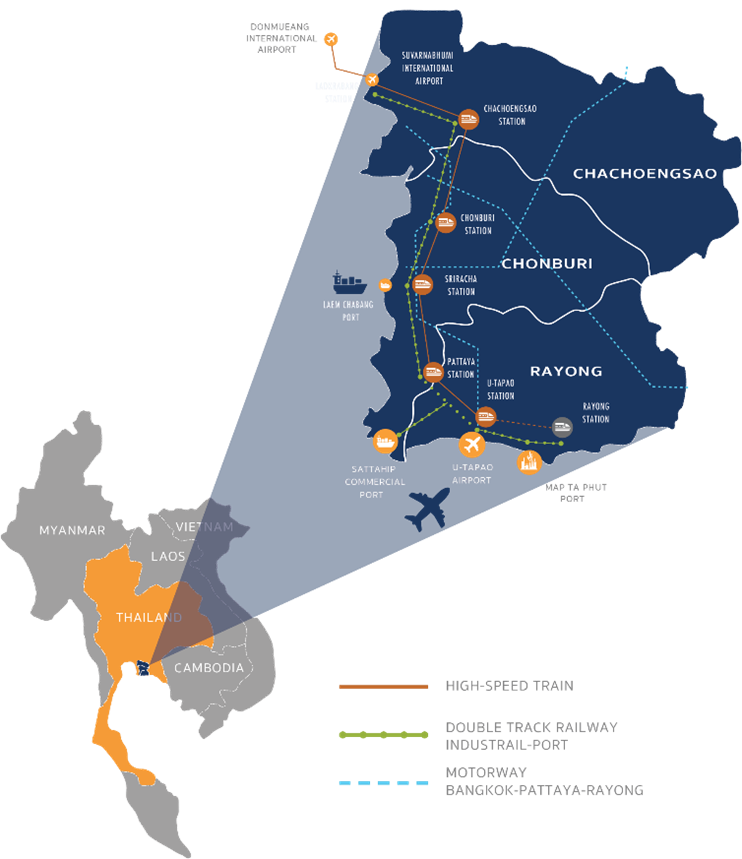
Search our articles
Thailand's political dynamics and their impact on the Eastern Economic Corridor (EEC) development

Key Insights:
- What's happening: Despite concerns of fractures within the Pheu Thai-led coalition after former Prime Minister Srettha Thavisin's removal, Paetongtarn Shinawatra's appointment as Prime Minister has reaffirmed the party’s coalition, including the politically powerful conservative militarist parties. This ensures the continuation of populist policies focused on economic support, rural development, and infrastructure growth.
- Why it matters: Thailand’s political parties agree that significant development is required to capture the historic investment flowing into Southeast Asia but power struggles over the specific industries and geographies left the path forward unclear. The successful maintenance of Pheu Thai’s coalition and the inclusion of the conservative militarists cements the future of the Eastern Economic Corridor (EEC). Its key components—enhanced land connectivity, U-Tapao Airport expansion, and Laem Chabang Port upgrades— are set to significantly benefit businesses and boost economic growth.
- What happens next: Despite being blocked from forming a government after winning the 2023 election, the People’s Party (formerly known as Move Forward Party) is expected to face less resistance in 2027 due to changes in the Senate's voting power, and they are likely to push for a more inclusive, sustainable approach to the EEC, with a focus on environmental regulations, transparency, and equitable regional development.
ANALYSIS
Pheu Thai’s continued control of the government
After the removal of former Prime Minister Srettha Thavisin due to an ethics violation, concerns arose about internal fractures within the Pheu Thai Party-led coalition, which includes conservative militarist parties. However, the recent appointment of Pheu Thai’s leader, Paetongtarn Shinawatra, as Prime Minister has alleviated these concerns, signaling the continuation of the coalition’s populist policies focused on economic support for lower-income groups, rural development, and infrastructure growth.
Vital infrastructure projects, such as the Eastern Economic Corridor, will continue
The EEC, a major initiative to develop the Eastern Seaboard region, was originally launched by the junta government of Prime Minister Prayut Chan-o-cha. In the 2023 general election, Pheu Thai proposed an alternative, the "Thailand 2030" policy, aimed at promoting balanced regional development across the country rather than concentrating investment in the eastern provinces. However, the EEC remains a priority, as it is supported by the majority of Pheu Thai’s coalition members.
The EEC’s core components will greatly benefit businesses:
- Enhanced land connectivity: Improved links between Bangkok and the Eastern Seaboard provinces (Chachoengsao, Chonburi, and Rayong).
- Expansion of U-Tapao Airport: This expansion will complement Suvarnabhumi Airport in Bangkok, increasing overall air traffic capacity.
- Upgrades to Laem Chabang Port: These upgrades will enhance the efficiency of maritime logistics and trade by complementing Bangkok Port.

Outlook for the EEC following the 2027 election
The 2027 political landscape will change, as the Senate will no longer participate in selecting the prime minister. This shift makes it unlikely that conservative militarist elements will be able to obstruct the People’s Party’s prime ministerial candidate if they win a majority in the 2027 election. The People’s Party has taken a cautious stance on the EEC. While not opposed to it, they have expressed concerns about its implementation. Under their leadership, the EEC is likely to see a move toward more inclusive and sustainable development. The People’s Party is expected to advocate for stricter environmental regulations, greater transparency, and increased community participation in decision-making. They may also aim to distribute the EEC’s benefits more evenly across regions, ensuring that economic growth supports broader national development rather than concentrating primarily in the eastern provinces.
Topics: Southeast Asia, Infrastructure

Written by Onyx Strategic Insights

